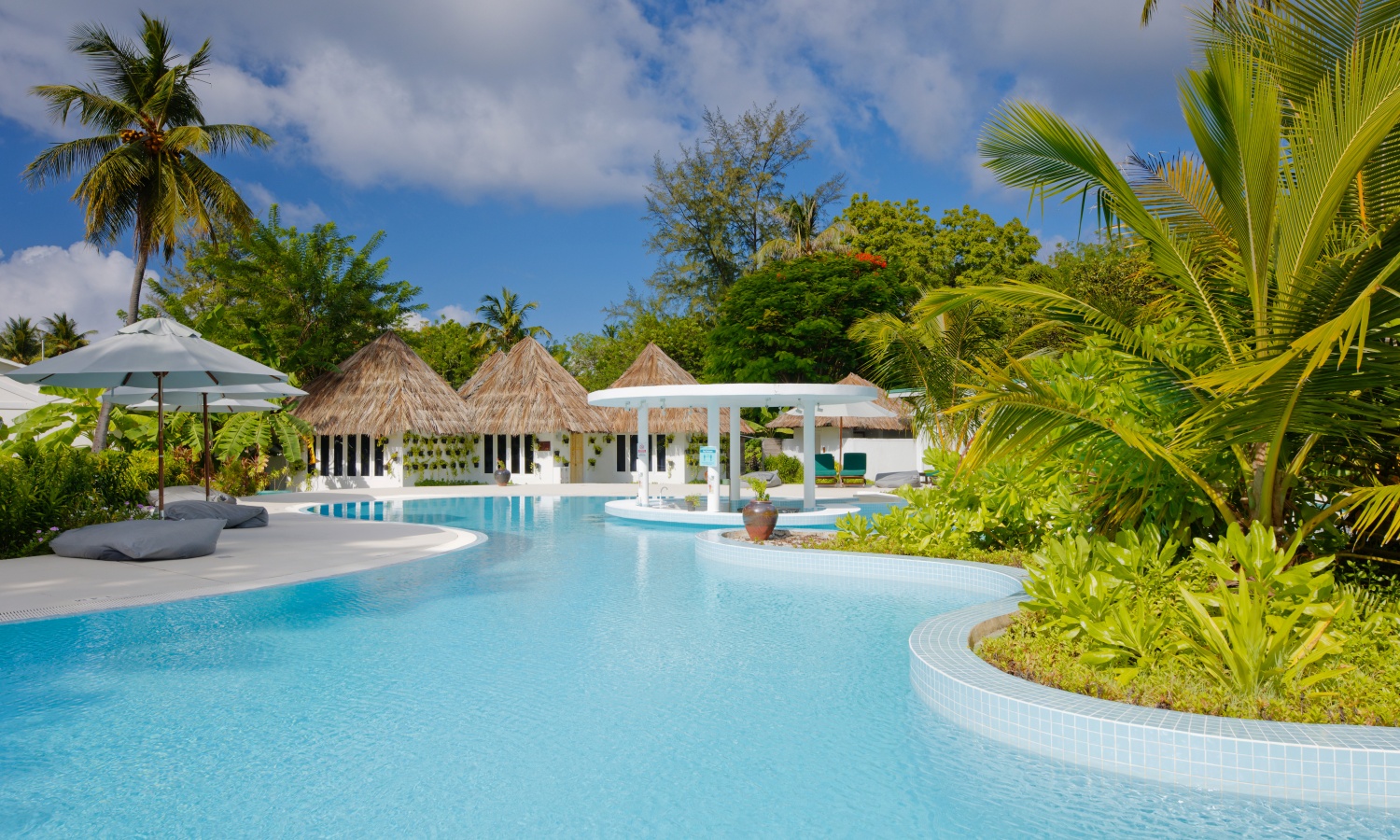Featured
Over 13k foreigners leave Maldives over coronavirus fears

Maldives has repatriated more than 13,000 foreigners — mostly migrant workers — stranded in the island nation due to the travel restrictions stemming from the global coronavirus pandemic.
Figures released by the immigration department on Saturday show that the most number of evacuees — 10,879 — were from Asian countries: 3,3384 Indias, 2,924 Bangladeshis, 808 Indonesians, 350 Thais, 336 Filipinos and 291 Sri Lankans.
European countries have also evacuated 2,091 of their citizens from the Maldives.
Another 41 that belong to African nations have also left the Maldives.
Bangladeshis and Indians make up the majority of the migrant worker population in Maldives.
They have been disproportionately affected by the coronavirus outbreak in the Maldives. Bangladeshi workers make up the majority of virus cases in country.
The confirmed local transmission clusters in the Maldives now include 1,065 Bangladeshis, 701 Maldivians, 191 Indians, 26 Nepalis, 11 Sri Lankans and three Pakistanis.
Authorities managed to mitigate the spread of the virus and the Covid-19 respiratory disease it causes amongst the Maldives’ citizens and residents early on by closing the Indian Ocean tourist paradise’s borders, earning praise from the World Health Organisation.
But the disease later spread rapidly within the large migrant worker community in capital Male. Authorities have ramped up relocating workers from the cramped up dormitories in one of the world’s most densely populated cities to temporary accommodation units.
An estimated 63,000 foreign nationals work in the Maldives illegally out of a migrant worker population close to 145,000.
Foreign workers in the Maldives, predominantly Bangladeshi and Indian men, are subjected to practices indicative of forced labour, including fraudulent recruitment, confiscation of identity and travel documents, withholding or non-payment of wages, and debt bondage.
As most migrant workers live in extremely poor conditions, a widespread outbreak amongst them could lead to large virus clusters, overwhelming the country’s already under staffed and strained healthcare system and making it harder for authorities to contain the spread of the virus.
On March 8, Maldives reported its first cases of the novel coronavirus, as two hotel employees tested positive for Covid-19 at a luxury resort in the archipelago.
Eighteen more cases — all foreigners working or staying resorts and liveaboard vessels except five Maldivians who had returned from abroad — were later identified.
A six-case cluster of locals, detected in capital Male on April 15, confirmed community transmission of the coronavirus. Several more clusters have since been identified, bringing the total number of confirmed case in the Maldives to 2,013.
Eight deaths have been reported and 1,217 have made full recoveries.
The Maldives announced a state of public health emergency on March 12, the first such declaration under a recent public health protection law.
The public health emergency declaration has allowed the government to introduce a series of unprecedented restrictive and social distancing measures, including stay-at-home orders in capital Male and its suburbs, a ban on inter-island transport and public gatherings across the country, and a nationwide closing of government offices, schools, colleges and universities.
Non-essential services and public places in the capital such as gyms, cinemas and parks have also been shut.
Restaurants and cafes in the capital have been asked to stop dine-in service and switch to takeaway and delivery.
A nationwide shutdown of all guesthouses, city hotels and spa facilities located on inhabited islands is also in effect.
The restrictions in the capital region are now being eased in phases, with the second phase kicking in from Monday and lasting at least until June end.
Entertainment
Game on! Kandima unveils Maldives’ most exciting all-ages entertainment hub

Kandima Maldives, the bold lifestyle resort known for redefining island getaways, has once again raised the bar with the launch of PlaySpace – an all-ages entertainment destination transforming the leisure landscape of the Maldives.
Centrally located within the island resort, PlaySpace blends nostalgic retro flair with cutting-edge fun, offering a dynamic mix of activities for families, thrill-seekers, and social guests alike. From action-packed bowling and immersive virtual reality to escape room challenges and private karaoke sessions, the venue strengthens Kandima’s position as the Maldives’ leading active lifestyle destination.
According to Dermot Birchall, General Manager at Kandima Maldives, “At Kandima, we’re constantly evolving the island experience. PlaySpace adds a new dimension – it’s immersive, social, and above all, wildly entertaining.”
Key Highlights of PlaySpace Include:
- Bowling Lanes with a Twist: Themed experiences such as Team Challenge, Date Night Deluxe, and Family Blitz, complemented by snacks, drinks, and curated playlists.
- Karaoke & Cocktails: Private singing rooms paired with wine, beer, or bubbly under the Karaoke & Cocktails Package.
- VR & Arcade Zone: Thrilling VR adventures, air hockey, billiards, and timeless arcade classics.
- Escape Rooms: Brain-teasing challenges for up to three guests – ideal for team bonding or friendly competition.
- Eats & Treats: A variety of gourmet snacks including paninis and mini pizzas, plus refreshing beverages like Tropical Dreamscape and Lychee Breeze – all alcohol-free.
With its vibrant 80s-inspired design and bold approach to leisure, PlaySpace perfectly reflects Kandima’s playful luxury ethos. Open daily from 10 am to 10 pm, it promises guests a unique and energetic addition to their island stay.
Adding to the excitement, Kandima has also introduced Fast Track, the Maldives’ first and only oceanfront e-go-kart circuit. Spanning 500 metres with 10 turns and speeds reaching up to 80 km/h, this professional-grade asphalt track brings a high-octane edge to island adventure.
As Kandima continues to innovate and launch new experiences, guests can expect even more surprises in the near future – with fun, flair, and freedom at the heart of it all.
Awards
Equator Village wins Indian Ocean’s Leading Airport Hotel 2025 at World Travel Awards

Equator Village has once again been honoured as the Indian Ocean’s Leading Airport Hotel at the World Travel Awards 2025, held on 28 June in Dar es Salaam, Tanzania. This marks the third consecutive year the resort has received this prestigious accolade, following earlier wins in 2023 and 2024, underscoring its commitment to service excellence and consistent guest satisfaction.
Mohamed Waheed, Resort Manager at Equator Village, expressed pride in the achievement, stating that the recognition reflects the dedication, creativity, and hard work of the entire team. He highlighted their commitment to delivering warm, personalised service and creating welcoming spaces that resonate with the charm and hospitality of the south. Waheed also extended gratitude to the resort’s guests and partners for their continued support and trust.
Celebrating over three decades of recognising hospitality excellence, the World Travel Awards is regarded as one of the most esteemed honours in global tourism. Winners are selected through a rigorous international voting process involving both travel professionals and the public.
Located just a five-minute drive from Gan International Airport, Equator Village offers exceptional convenience along with the relaxed charm of the southern Maldives. The resort features 78 spacious bungalows surrounded by lush flower gardens, alongside facilities including a beachfront restaurant, bar, pool, gym, and meeting spaces – all infused with tropical flair and heartfelt southern hospitality.
Awards
Dhawa Ihuru recognised among Maldives’ Best House Reefs by Travel + Leisure Asia

Dhawa Ihuru has been named one of the Best House Reefs in the Maldives by Travel + Leisure Asia in its esteemed Luxury Awards 2025. Renowned as a stylish retreat for diving enthusiasts, the resort’s house reef—home to reef sharks, turtles, eagle rays, and vibrant coral ecosystems—continues to attract and inspire travellers from across the globe.
This accolade goes beyond recognition, reflecting over two decades of steadfast dedication to marine conservation, scientific research, and coral restoration. These efforts have transformed the house reef into a living testament to sustainable tourism.
Since the establishment of the Banyan Group’s Marine Lab in 2004—the first resort-based conservation and research facility in the Maldives—Dhawa Ihuru has been at the forefront of environmental responsibility. Through long-term coral preservation projects and guest-focused educational initiatives, the resort has consistently promoted biodiversity and sustainability.
Guests at Dhawa Ihuru are invited to participate in a range of conservation efforts, including:
- Coral planting and reef regeneration
- Reef monitoring alongside marine biologists
- Turtle identification and tracking
- Sustainability workshops and marine talks
- Community engagement programmes
These hands-on experiences not only aid in ecosystem restoration but also nurture awareness and a sense of shared responsibility among travellers.
“This recognition is a reflection of our long-standing commitment to marine protection,” said Elias Pertoft, General Manager of Dhawa Ihuru and Banyan Tree Vabbinfaru. “What began as a vision nearly three decades ago has evolved into a living legacy of conservation. We are proud to continue nurturing one of the Maldives’ most biodiverse reefs—not only for our guests, but for future generations.”
Nick, Marine Lab Manager at the resort, added, “Over the past 20 years, our immersive marine biodiversity programmes, including hands-on conservation activities, have provided both educational and inspiring experiences. By involving our guests, we are enriching their stay and fostering a global community of marine stewards.”
To commemorate this achievement and celebrate the resort’s flourishing marine environment, Dhawa Ihuru will host the Rannamaari Dive Fest on 24 July 2025—a full-day celebration running from 10 AM to 10 PM. Inspired by the legendary Rannamaari shipwreck, the event will showcase the vibrancy of island life both above and below the waterline.
Event highlights include:
- Underwater treasure hunts for divers and non-divers
- Marine conservation talks and activities with the resort’s Marine Lab team
- Cultural and creative island experiences, such as Maldivian arts & crafts with local artists, a Maldivian cooking class, a DIY wellbeing workshop, and family-friendly activities
- A sunset cocktail celebration at Velavani Bar, followed by a beachfront DJ night
Travellers are invited to take part in this unique celebration that blends adventure, culture, and conservation—honouring one of the Maldives’ most iconic house reefs and contributing to its protection for generations to come.
-

 Awards1 week ago
Awards1 week agoSirru Fen Fushi secures top spots in Travel + Leisure Luxury Awards 2025
-

 Featured1 week ago
Featured1 week agoKuda Villingili’s iconic pool honoured in Travel + Leisure Asia Pacific Awards
-

 Featured1 week ago
Featured1 week agoGlobal recognition for InterContinental Maldives Maamunagau Resort at 2025 T+L Luxury Awards
-

 Awards1 week ago
Awards1 week agoTravel + Leisure Asia Pacific awards Villa Nautica Best Resort Pool in Maldives
-

 Action1 week ago
Action1 week agoHideaway Beach Resort unveils new indoor pickleball court for wellness enthusiasts
-

 Featured1 week ago
Featured1 week agoSO/ Maldives unveils restorative wellness journey with Holistic Healer Karan Kumar
-

 Featured1 week ago
Featured1 week agoElevated wellness: Aerial Yoga launches at Sun Siyam Olhuveli Maldives
-

 Featured1 week ago
Featured1 week agoSun Siyam Iru Veli debuts Wellness in Motion Week with beach runs and expert-led yoga








